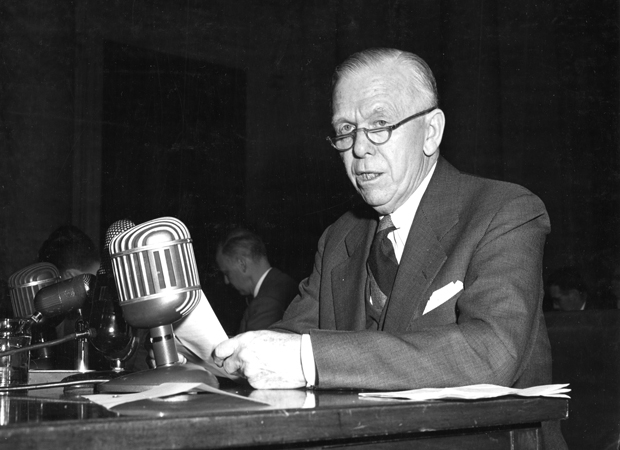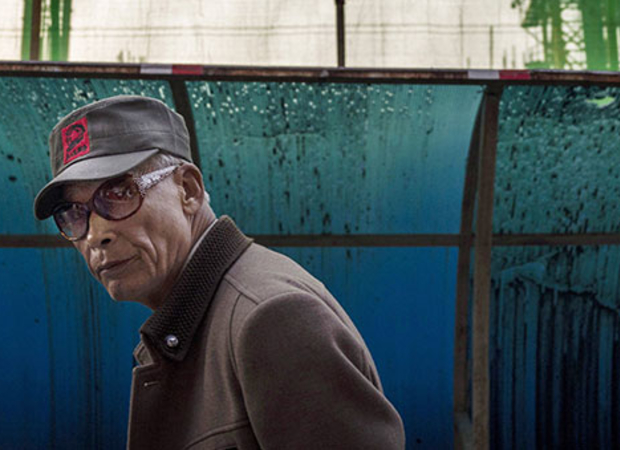
Blood Letters
Blood Letters tells the astonishing tale of Lin Zhao, a poet and journalist arrested by the authorities in 1960 and executed eight years later, at the height of the Cultural Revolution. Openly and steadfastly opposing communism under Mao, she rooted her dissent in her Christian faith—and expressed it in long, prophetic writings done in her own blood, and at times on her clothes and on cloth torn from her bedsheets.
China’s Communist Party Has Come of Age – the West Should Wake Up
The Chinese Communist party congress displayed all the qualities beloved by Leninist institutions over the ages, of deep secrecy mixed with stern pageantry, leveraged in the service of reinforcing their leaders’ inviolate right to rule.
The Communist Party Ghostwriters Who Wrote the Book on Xi Jinping
The call came in 2015. He Yiting, a vice-chairman of the training ground for top Communist Party cadres, was given a mission that would take the next two years of his life.
China’s Top Graft Buster Attacks ‘Unhealthy’ Political Culture
China’s top graft-buster launched a scathing attack on the ruling Communist Party’s members on Monday, writing that party political culture remained ‘unhealthy’ and governance weak even after five years of renewed effort to fight the...
Outrage as Hong Kong Democracy Campaigners Urge U.S. to Get Tough with Beijing
The central government has accused Hong Kong’s highest-profile democracy campaigners of involvement in foreign meddling in China’s internal affairs by addressing a U.S. congressional panel on Wednesday night.
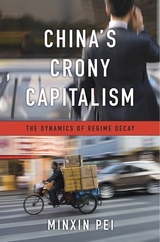
China’s Crony Capitalism
When Deng Xiaoping launched China on the path to economic reform in the late 1970s, he vowed to build “socialism with Chinese characteristics.” More than three decades later, China’s efforts to modernize have yielded something very different from the working people’s paradise Deng envisioned: an incipient kleptocracy, characterized by endemic corruption, soaring income inequality, and growing social tensions.
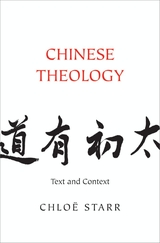
Chinese Theology
In this groundbreaking and authoritative study, Chloë Starr explores key writings of Chinese Christian intellectuals, from philosophical dialogues of the late imperial era to micro-blogs of pastors in the 21st century. Through a series of close textual readings, she sheds new light on such central issues in Chinese theology as Christian identity and the evolving question of how Christians should relate to society and state.
Castro’s Death a Reminder in China of Changed Communist Axis
China and Cuba frequently nod to their shared ideological history, but relations revolve more around developing beach resorts or Chinese telecoms investments
Russia Welcomes Growing Wave of “Red Tourists” from China
Nostalgia for Communist past as well as capitalist bargain-hunting draw more Chinese visitors
Li Keqiang Becomes First Chinese Premier to Visit Cuba
The world’s largest and smallest communist states have had stable relations for years.
Brexit Is Providing Great Fodder for China's Communist Propaganda Machine
Brexit is concrete evidence that democratic decision-making can lead to catastrophic results.
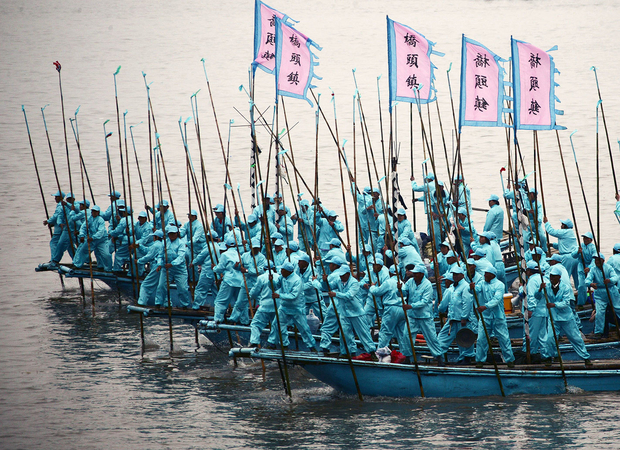
German President Joachim Gauck’s Speech at Tongji University in Shanghai
from Der BundespräsidentOn Wednesday, March 23, German President Joachim Gauck addressed an audience of university students in Shanghai. Among many views not typically aired in public in China, Gauck, a former Luterhan minister and anti-communist organizer, told the...
Lenin’s Chinese Heirs
For Xi, Politics Comes First and Economy Second.
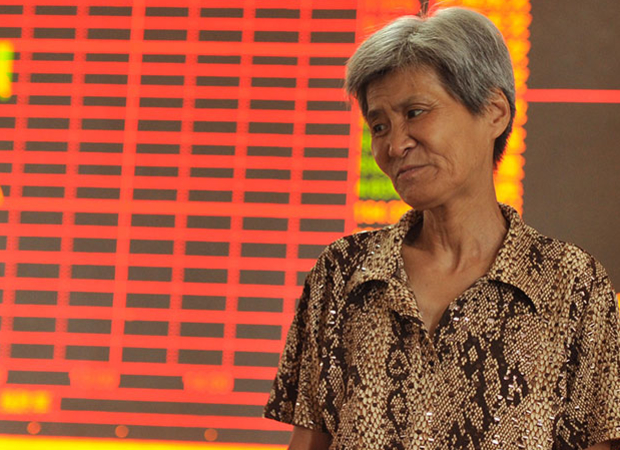
Is the Bloom Off the Rose of China’s Economic Miracle?
On Monday, August 24, the Shanghai Composite Index dropped 8.5 percent, its second such steep fall since late July, and its worst since...
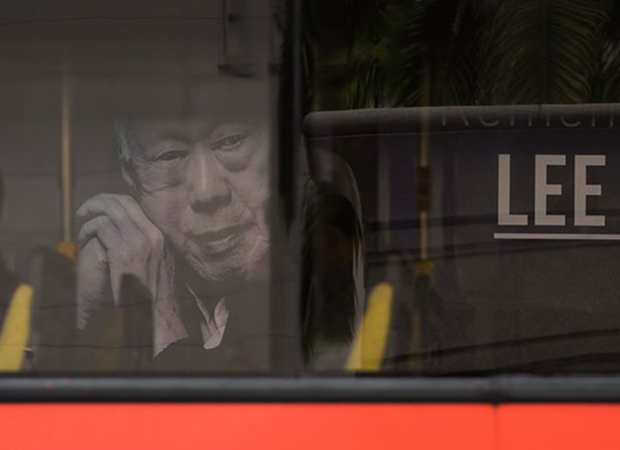
Was Lee Kuan Yew an Inspiration or a Race Traitor? Chinese Can’t Agree
When Lee Kuan Yew, the founding father of Singapore, passed away at the ripe age of 91 on March 23, the elderly statesman was as controversial in death as in life—and...

Why Marx Still Matters: The Ideological Drivers of Chinese Politics
In days of greater political brouhaha, “to go and see Marx” used to be a slang expression among Chinese Communists, to refer to death. More recently, a considerable number of commentators have pronounced the expiry of Marxism itself. China’s...
25 Years Later, Lessons From Tiananmen Square Crackdown
A quarter century after democracy protests ended in bloodshed, Chinese still clamor for clean government and courts.

Initial Impressions: Three First Trips to China, 1970s-1990s
from Sinica PodcastIn this show: dating tips for hooking up with your Marxist-Leninist thought instructor, advice on what modern music and seasonal vegetables to smuggle in from Hong Kong, the origins of China’s somewhat unorthodox driving customs, and instructions...
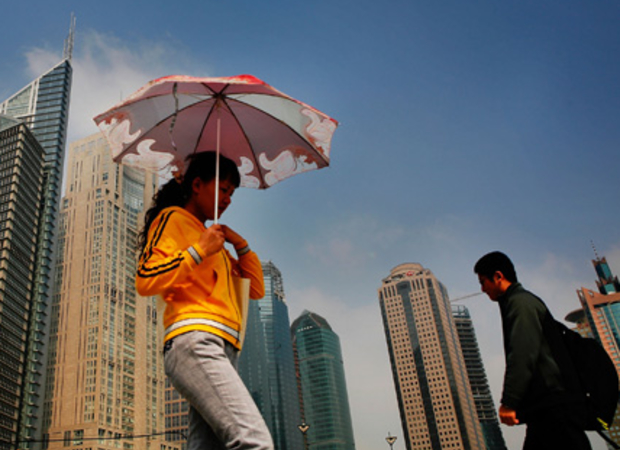
In Conversation with Timothy Garton Ash
from Sinica PodcastThis week on Sinica, Kaiser Kuo and Jeremy Goldkorn are pleased to host a conversation with Timothy Garton Ash, Professor of History at Oxford University and recent participant in the Capital M Literary Festival in Beijing. As one the world's...
China Bans Professor From Teaching Over His Advocacy of Constitution
The crackdown on Zhang Xuezhong is part of a broader stiffening of ideological control in the country’s universities as faculty and students grow skeptical of required courses in Communist ideology.
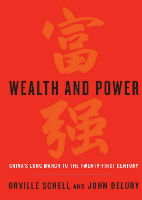
Wealth and Power
Through a series of lively and absorbing portraits of iconic modern Chinese leaders and thinkers, two of today’s foremost specialists on China provide a panoramic narrative of this country’s rise to preeminence that is at once analytical and personal. How did a nation, after a long and painful period of dynastic decline, intellectual upheaval, foreign occupation, civil war, and revolution, manage to burst forth onto the world stage with such an impressive run of hyperdevelopment and wealth creation—culminating in the extraordinary dynamism of China today?

China: Politics as Warfare
from New York Review of BooksMao’s Invisible Hand is one of those books that make one feel good about scholarship. It describes inner workings of Chinese Communist society about which few nonexperts know anything—it may even surprise the experts—and it will interest...
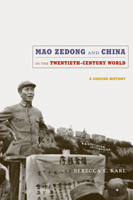
Mao Zedong and China in the Twentieth-Century World
Throughout this lively and concise historical account of Mao Zedong’s life and thought, Rebecca E. Karl places the revolutionary leader’s personal experiences, social visions and theory, military strategies, and developmental and foreign policies in a dynamic narrative of the Chinese revolution. She situates Mao and the revolution in a global setting informed by imperialism, decolonization, and third worldism, and discusses worldwide trends in politics, the economy, military power, and territorial sovereignty.
China: The Shame of the Villages
from New York Review of Books1.
Published fifteen years ago, Chinese Village, Socialist State, as I wrote at the time, not only contained a more telling account of Chinese rural life than any other I had read; it also produced a new understanding “of the...
China: The Uses of Fear
from New York Review of BooksInstilling deadly fear throughout the population was one of Mao Zedong’s lasting contributions to China since the late Twenties. In the case of Dai Qing, one of China’s sharpest critics before 1989, fear seems to explain the sad transformation in...

Chinese Shadows
from New York Review of BooksThere are many reasons for getting tattooed. But a sense of belonging—to a group, a faith, or a person—is key. As a mark of identification a tattoo is more lasting than a passport. This is not always voluntary. In Japan, criminals...
The Anatomy of Collapse
from New York Review of BooksIn Moscow, 1991, as in Beijing in 1989, eight hard liners made a last-ditch stand to preserve communism. Yet in both cases, the Communist party was left on the sidelines and no appeal was made for support in the name of Communist doctrine....

Why China’s Rulers Fear Democracy
from New York Review of BooksTo try to understand is not to condone or forgive. Quite the contrary. In this bicentennial year when a euphoria for democratic rights seemed to be sweeping the world, why was it stopped in Tiananmen Square? Why do China’s rulers attack their...
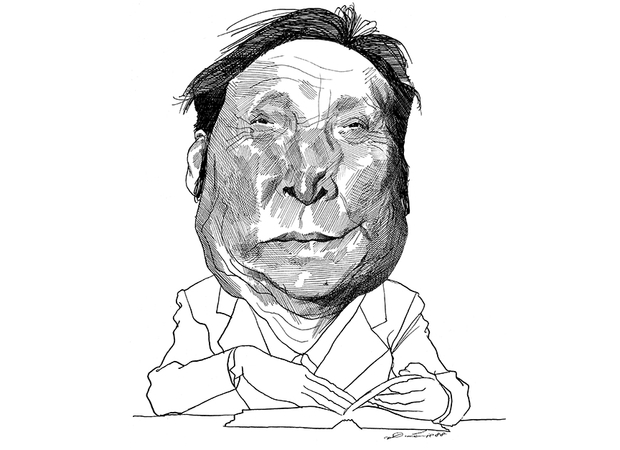
The Price China Has Paid: An Interview with Liu Binyan
from New York Review of BooksLiu Binyan is a sixty-two-year-old writer and journalist who is regarded as the preeminent intellectual advocating reform in China today. During the mid-1950s and again throughout the post-Mao period, he has strongly criticized Communist party...
Chinese Shadows: Bureaucracy, Happiness, History
from New York Review of BooksIn the sixth century BC, at the time the Tso Chuan refers to, China’s social hierarchy had only ten degrees. We have progressed since then: the Maoist bureaucracy today has thirty hierarchical classes, each with specific privileges and...
North Vietnam and China: Reflections on a Visit
Early this year I went to Hanoi by way of China. After spending a week in Peking I went to North Vietnam for just over a month and then returned to China, where I stayed in Changsha and Canton for two weeks. Later I spent three and a half weeks...





